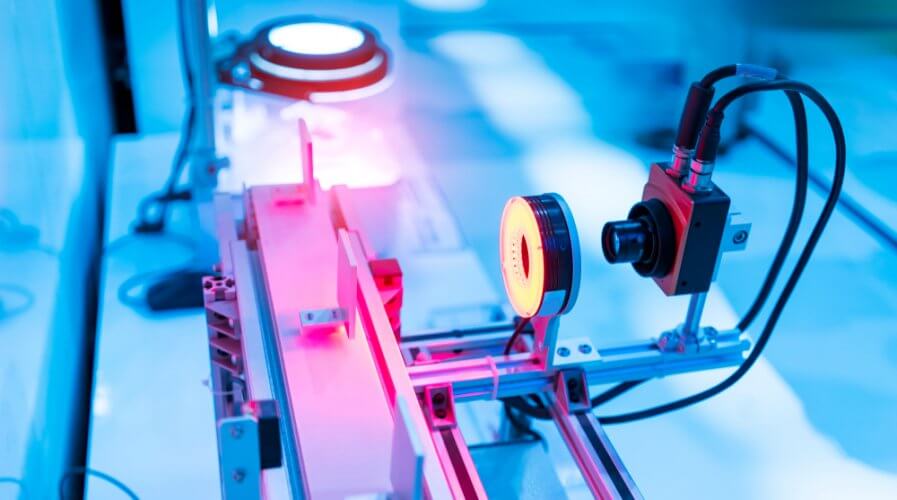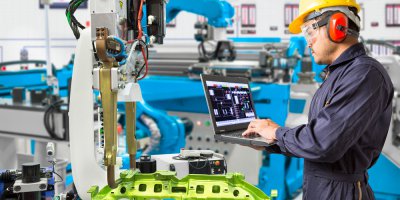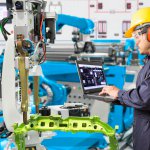
How IIoT will disrupt manufacturing. Source: Shutterstock
How IIoT will disrupt manufacturing
The rise in AI in the last few years has awakened many industries to technology’s potential.
Manufacturers are turning to digital solutions as part of their digital transformation journey. Though, the one true component that can revolutionize it from the core would be the industrial internet of things (IIoT).
From a technological point of view, IIoT is a network of smart devices in an industrial space. The network allows machine-to-machine communications that carry out automated processes.
The use of IIoT in manufacturing will benefit enterprises more than just cost savings. The strategic application of this technology will improve profitability as much as it promotes a better workplace environment.
#1 | Predictive maintenance
So they say, don’t fix what’s not broken. With an IIoT system in place, we will be able to nurse a machine back to full health before it even cracks. IIoT-enabled sensors can predict when a machine breaks down.
Sensors do not only capture data of malfunctions, but it also uses machine learning (ML) analysis to accurately calculate potential failures. Having this technology will eliminate the possibility of prolonged downtime and will help extend machines lifespan.
#2 | Remote-control operation
IIoT systems are designed to connect all parts of manufacturing to a centralized system, bringing control over equipment. The cloud-based system would be accessible by authorized personnel to monitor or assess off-site.
Instead of manual labor making rounds on factory grounds, operations could be controlled from a distance. This is the ultimate solution for businesses that want to expand offshore but do not have the necessary manpower.
#3 | Internal collaboration
Surely, IIoT connects the smart devices but it also makes boardroom conversations smarter. There are debates about how automation promotes workspace silos. However, internal collaboration is the crux of an IIoT system’s success.
The process of designing an IIoT system that truly creates value for the business requires all departments to come together. Deploying IIoT is not a matter of overnight success. Operational issues will need to be raised and scrutinized so that real long-term solutions can be made.
In that sense, incorporating IIoT in manufacturing is able to maximize the collaboration more than its existing structure could have.
Technological exploration has led us to an insane amount of new technologies disrupting new markets and scaling industries globally. IIoT is one of them.
The insight gained from big data is as valuable as revenue if not more when used wisely.
Right now, IIoT is at its infancy in terms of making real use of the connected devices. It is exciting to see how IIoT develops and make its way into operations; used in ways unperceived of.
READ MORE
- Strategies for Democratizing GenAI
- The criticality of endpoint management in cybersecurity and operations
- Ethical AI: The renewed importance of safeguarding data and customer privacy in Generative AI applications
- How Japan balances AI-driven opportunities with cybersecurity needs
- Deploying SASE: Benchmarking your approach




